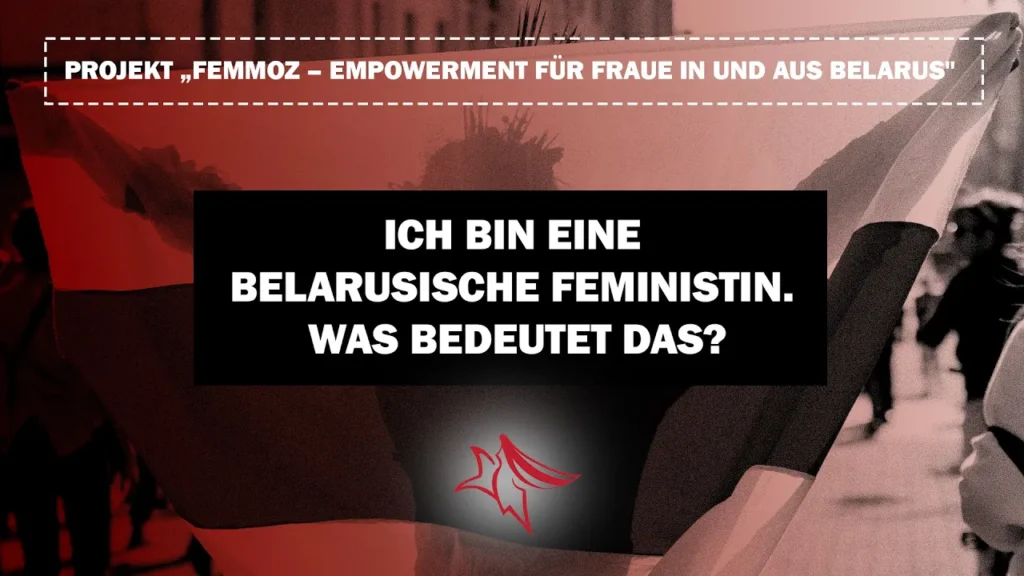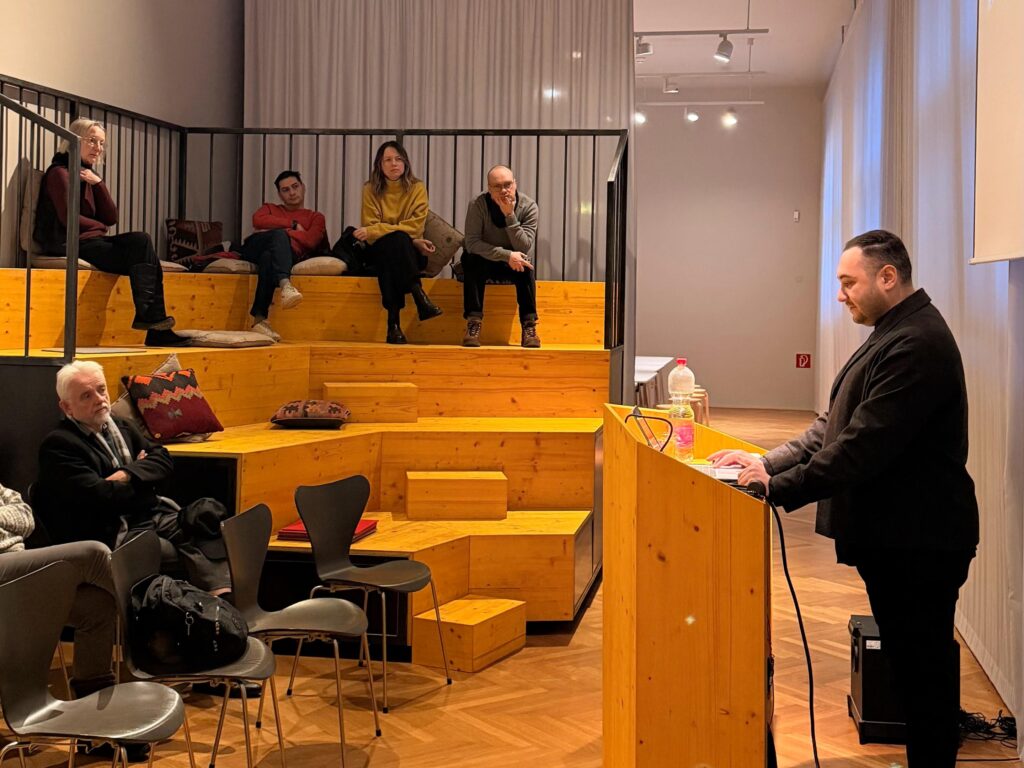Online discussion “Being a feminist from Belarus. What is it like?”
What challenges have feminists from Belarus been facing since 2020? Belarusian experts, media professionals, and feminists discussed their work and what distinguishes the Belarusian feminist movement.
The video of the discussion in Russian can be found here.
Panelists:
- Ksiusha Maliukova – activist, scientist, feminist, organizer of social events and projects
- Yuliya Mitskevich – political and civil society activist, gender expert, co-founder of the Fem Group and Fem Faction in the Coordination Council
Moderation:
- Alena Aharelysheva – gender scholar and activist, project manager in nonprofit organizations
How can the Belarusian feminist movement from 2020 to 2023 be characterized?
The informal network of Belarusian fem and queer activists may be characterized by mutual support and collaboration and has been providing assistance to women not only in the context of the 2020 events in Belarus but also in the context of the war in Ukraine. Before 2020, attempts at collaboration in Belarus were challenging, forcing initiatives and activists to conduct “stand-alone” campaigns. At the same time, some major organizations focusing on the issues of gender and women’s rights managed to operate in Belarus, in addition to the efforts of grassroots activists. All independent women’s movements were pro-feminist because their activities were, and still are, based on the values of feminism.
However, the main problem lies not within the movement but outside. Activists encounter significant resistance from the Belarusian democratic community and democratic forces when promoting the feminist agenda and gender equality issues. Also, Belarusian independent media do not engage in these issues and ignore the feminist agenda.
The experts also highlight that working in exile presents a challenge to the Belarusian feminist movement. Most feminists and activists in this field have left the country due to the repressive policies of the regime. Those who continue to stay in Belarus cannot work openly. All organizations and NGOs dealing with women’s issues either continue to exist in exile or have been liquidated by the Lukashenka government. Belarusian women inside the country do not have access to support within the country. They cannot follow the feminist agenda and acquire knowledge about women’s rights. Only a few new activists join the movement. There is currently no independent Belarusian media focusing on feminism or women, apart from some niche projects and activities.
In addition, in such a challenging situation, the Belarusian feminist movement lacks a clear strategy and understanding of what to do next. Strong social connections have not been formed between different projects.
At the moment, the women’s movement in Belarus often manifests itself in various forms of resistance, like assistance to political prisoners through collecting and sending care packages and letters to prisons.
The Fem Group of the Coordination Council has been working on a strategy and intends to release a manifesto, presenting a vision of the future feminist and queer communities in Belarus.
Experts note that the experience of participating in women’s marches has raised public awareness, increasing the number of feminist activists, as well as other women understanding feminist values and seeing feminism in a positive light. This is true both for the women who remain in the country and the feminist activists who continue their activities in exile.
A large proportion of women who joined the movement and organized peaceful protests, solidarity rallies, or women’s gatherings in Belarus did not share feminist ideas, call themselves feminists, or consider themselves as such. At the same time, regardless of the self-identification of women participating in women’s protest rallies, the principles, standards, and values of those rallies were characteristic of feminism. They included horizontal communication, decision-making inclusiveness, and consideration of diverse opinions and experiences. The participation of fem and queer communities in the women’s marches in Belarus in 2020 and the active involvement of women’s rights activists allowed many other women to learn about the fem community and abandon the false beliefs about its activities. This led many of them to join the feminist movement of Belarusian women.




